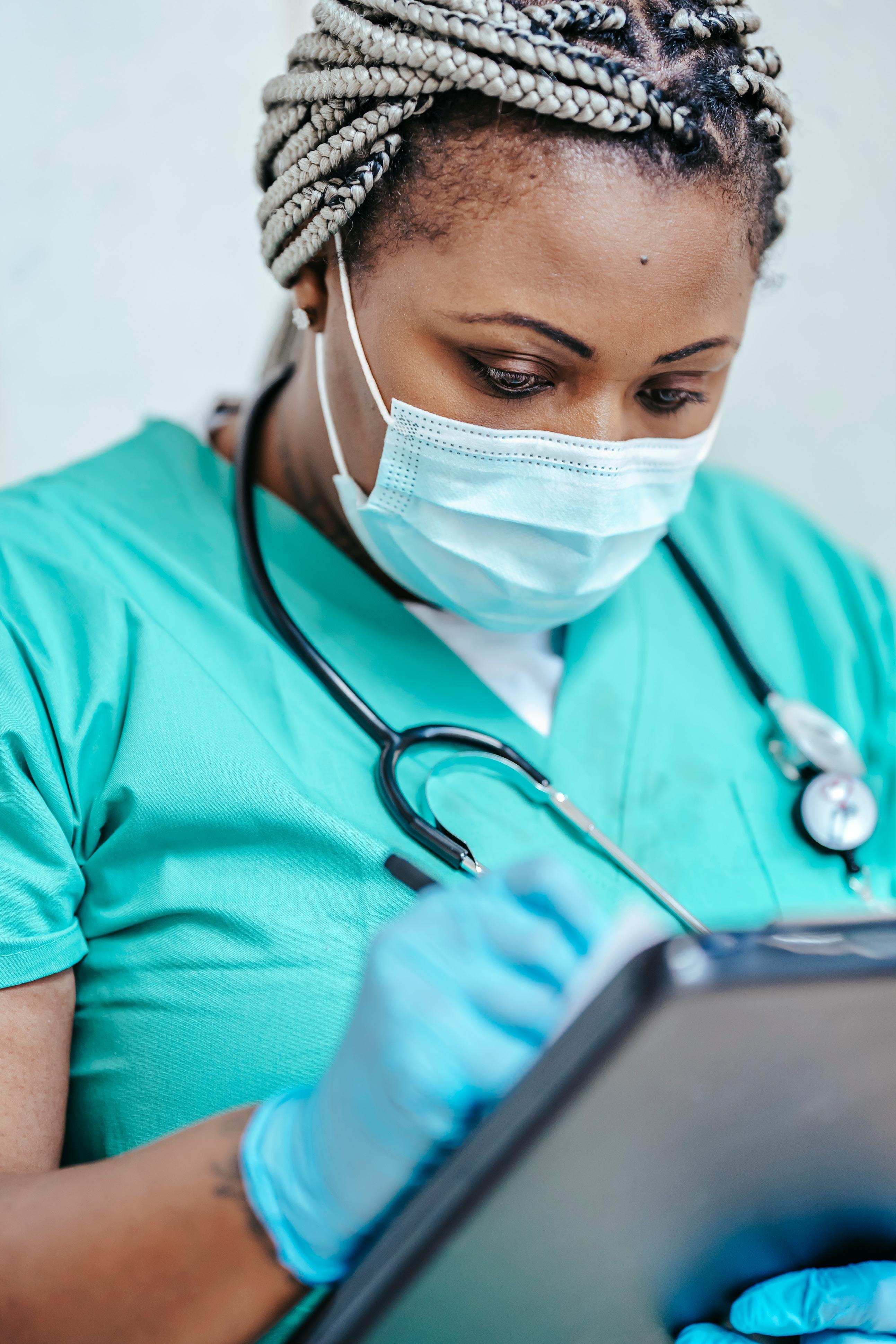
7 minute read
ADDRESS Study for Adults Living with Pemphigus
A CALL FOR THE PATIENT COMMUNITY TO LEARN MORE ABOUT PARTICIPATING IN THE DRUG DEVELOPMENT PROCESS
John Holtz and Kathy Perez
Advertisement
Patient-focused awareness
At argenx we believe that working with patients in the early stages of drug development is critical. Patients who are living with rare autoimmune conditions are best able to share the needs of their community. All aspects of life can be affected by a rare disease diagnosis, and researchers must keep these needs at the forefront of clinical studies. One trial that is working directly with the pemphigus community is the ADDRESS study. The team at argenx is working toward including pemphigus patient feedback into trial designs in an effort to ensure that the community's needs are being heard.
In 2019, the economic burden of 379 rare diseases in the US economy was found to be nearly $1 trillion by the EveryLife Foundation for Rare Diseases. The report surveyed 1,399 members from the rare disease community, including the pemphigus community, and identified direct medical costs and indirect costs experienced by patients and families living with a rare disease. The first of its kind, this survey not only identified the economic burden of rare diseases, but also highlighted the need for additional patient-centered research and therapy development.1,2
The Food and Drug Administration (FDA) has realized the importance of listening to the patient community as well. This was highlighted in the February 2021 FDA Patient Listening Session on pemphigus and pemphigoid (P/P). During the listening session, five people living with P/P shared their journeys and the emotional impacts that the diseases have had on each of their lives. These patients identified inadequate treatment options, diagnostic delays, and undertreated areas of the disease (mental and social burdens) as urgent issues that have negatively affected their daily lives. The pemphigus community also discussed the negative impact of an incorrect diagnosis, a decrease in quality of life, and the financial toll of treatments as further issues of living with a rare disease.3
Patient-focused clinical trial
Pemphigus and pemphigoid are rare autoimmune diseases that cause the body’s immune system to create antibodies that attack and damage healthy cells in the skin and mucous membranes. Pemphigus vulgaris (PV) is the most common type of pemphigus and causes blisters on the skin and mucus membranes, such as the mouth and/or eyes.
Early in the COVID-19 pandemic, our team at argenx worked with the International Pemphigus & Pemphigoid Foundation (IPPF) to convene a panel of pemphigus patients to gain their feedback and input for consideration in developing our Phase 3 clinical trial design, ADDRESS. Based on feedback, the argenx team was able to make adjustments to the protocol to allow for the potential for home health visits, the provision of personal protective equipment, and alternate sites of care. Understanding the perspective of the pemphigus patient and their experience during COVID was critical to designing a patient-focused trial.
Additionally, our team discussed the patient’s treatment goals in an effort to understand what was important. Patients indicated that quality of life, access to treatments, safety, and low side effects were all areas of potential improvement. This information continues to guide our work to support the IPPF community. Elevating awareness and participation in clinical studies, such as the ADDRESS study, aims to help researchers understand more about pemphigus and the patients being treated.
Thank you to all patients who participate in clinical trial research. Your participation is a step toward making progress.
About the ADDRESS study
Find out more about the ADDRESS study at addresspemphigusstudy.com and clinicaltrials.gov NCT04598451.
The ADDRESS study is designed to assess how effective and safe the investigational study drug efgartigimod* SC (SC or subcutaneous, under the skin) is compared to a placebo (a drug with no active ingredient) as a possible treatment for adults living with PV or PF (pemphigus foliaceus). Both study drug and placebo are given with prednisone. The study aims to reach patients in 100 countries.4
Participants will be enrolled in the ADDRESS study for up to 41 weeks. If all criteria are met at the end of the study, then participants may be able to join an open-label extension study (ADDRESS+ study) where everyone will receive efgartigimod* SC.4

Eligibility requirements for the ADDRESS clinical study participants:
• Are at least 18 years of age or older • Have a clinical diagnosis of pemphigus vulgaris (mucosal, cutaneous, mucocutaneous) or pemphigus foliaceus • Have no known negative reactions to oral prednisone • Have not been diagnosed with another significant serious disease
• Began to show symptoms for the first time within the past four years
There are additional study requirements that participants must meet to take part in the study. Read more about additional requirements at addresspemphigusstudy.com. *Efgartigimod SC is an investigational study drug that is currently being studied in multiple disease states. Efgartigimod SC is an investigational study drug that is not currently approved for use by any regulatory agency as efficacy and safety have not been established.
Interested in participating in a clinical trial?
Advancing rare disease research and potential therapy development includes factors such as advocacy and participation in clinical trials studying the safety and efficacy of treatments. Patients may have the opportunity to directly influence research through the study design, treatment goals, and outcomes of these trials.
We owe the participants of clinical trials a debt of gratitude. They have contributed to the understanding of pemphigus and informed the medical community how best to advance research. Future generations may benefit from the knowledge gained with each clinical trial.
If you think you’re eligible for and want to participate in the ADDRESS clinical study for adults living with pemphigus, speak with your doctor and check to see if there’s an active location currently enrolling participants in your area. A study representative will be able to discuss any additional requirements and availability with you. If you’re not a match, you can also spread awareness of the ADDRESS study to help the pemphigus community. Remember to make your voice heard.
References
1. EveryLife Foundation for Rare Diseases. The National Economic
Burden of Rare Disease Study. February 25, 2021. Accessed
June 2021. https://everylifefoundation.org/wp-content/ uploads/2021/02/The_National_Economic_Burden_of_Rare_
Disease_Study_Summary_Report_February_2021.pdf 2. EveryLife Foundation for Rare Diseases. The National Economic
Burden of Rare Disease Study Infographic. February 25, 2021.
Accessed June 2021. https://everylifefoundation.org/wpcontent/ uploads/2021/02/The_National_Economic_Burden_of_Rare_
Disease_Study _Infographic_February_2021.pdf 3. International Pemphigus & Pemphigoid Foundation. February 8, 2021. Accessed June 2021. https://www.pemphigus.org/ wp-content/uploads/IPPF-FDA-Listening Session.pdf 4. argenx. ADDRESS Pemphigus Study. Accessed June 2021. https://addresspemphigusstudy.com/
John Holtz is the Associate Medical Director for Dermatology at argenx. He received his PhD in physical chemistry in 1997 and MBA in 1998 from the University of Pittsburgh. He has worked in pharmaceuticals and biotechnology, focusing on immunology, including autoimmune diseases and allergy, for over 20 years. Currently, he is contributing to the scientific platform and medical affairs functions for pemphigus and other autoimmune skin diseases at argenx.
Kathy Perez is the Head of Global Patient Advocacy at argenx. She joined argenx in 2019 to lead the Patient Advocacy and Policy initiatives in support of rare autoimmune diseases including myasthenia gravis, ITP, pemphigus/pemphigoid and CIDP. Kathy comes to argenx with over 30 years in the Biotech industry.
argenx is a global immunology company committed to improving the lives of people suffering from severe autoimmune diseases and cancer. Partnering with leading academic researchers through its Immunology Innovation Program, argenx aims to translate immunology breakthroughs into a world-class portfolio of novel antibody-based medicines. argenx is evaluating efgartigimod* in multiple serious autoimmune diseases. argenx is also advancing several earlier stage experimental medicines within its therapeutic franchises. argenx has offices in Belgium, the United States, Japan, and Switzerland. For more information, visit www.argenx.com and follow us on LinkedIn.
*Efgartigimod SC is an investigational study drug that is currently being studied in multiple disease states. Efgartigimod SC is an investigational study drug that is not currently approved for use by any regulatory agency as efficacy and safety have not been established.
More About Clinical Studies
Clinical studies are research studies that evaluate the effect of an intervention on specified outcomes. In a clinical trial, volunteer participants receive specific interventions according to the research plan or protocol. These interventions may be medical products, such as drugs or devices; procedures; or changes to participants’ behavior, such as diet.1

Clinical trials used in drug development are sometimes categorized by phase. These phases are defined by the FDA. Each phase has a different purpose and helps researchers answer different questions.2
Phase 1: Researchers test an investigational study drug or treatment in a small group of people for the first time. The purpose is to study the drug or treatment to learn about safety and identify side effects. Phase 2: The investigational drug or treatment is given to a larger group of people to determine its effectiveness and to further study its safety. Phase 3: The investigational drug or treatment is given to large groups of people to confirm its effectiveness, monitor side effects, compare it with standard or similar treatments, and collect information that will allow the investigational drug or treatment to be used safely. Phase 4: After a drug is approved by the FDA and made available to the public, researchers track its safety in the general population, seeking more information about a drug or treatment’s benefits, and optimal use.
1. U.S. National Library of Medicine. Learn About Clinical Studies. March 2019. Accessed June 2021. https://clinicaltrials.gov/ct2/about-studies/learn#WhatIs 2. National Institutes of Health. The Basics. October 20, 2017. Accessed June 2021. https://www.nih.gov/health-information/nih-clinical-research-trials-you/basics









